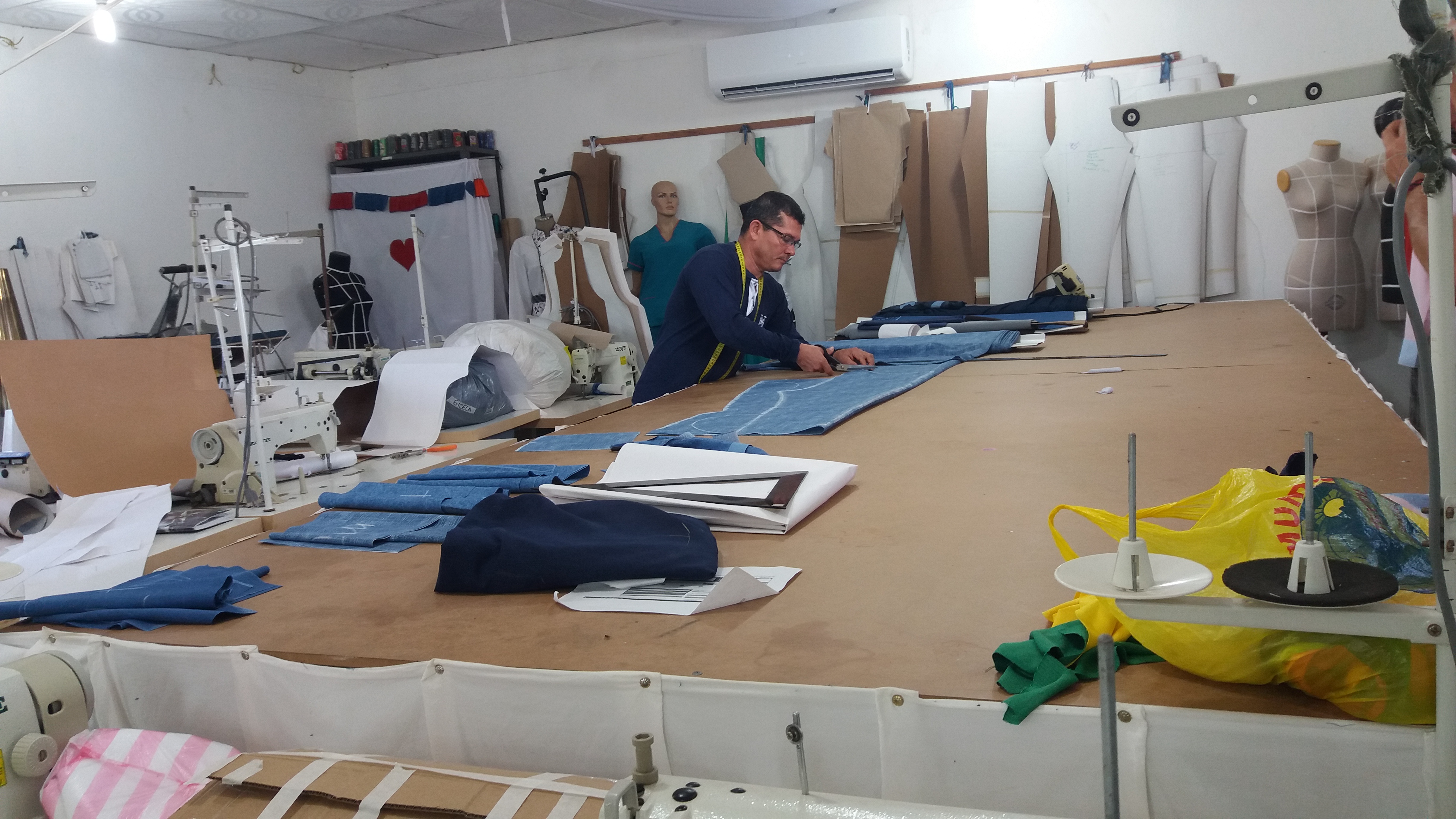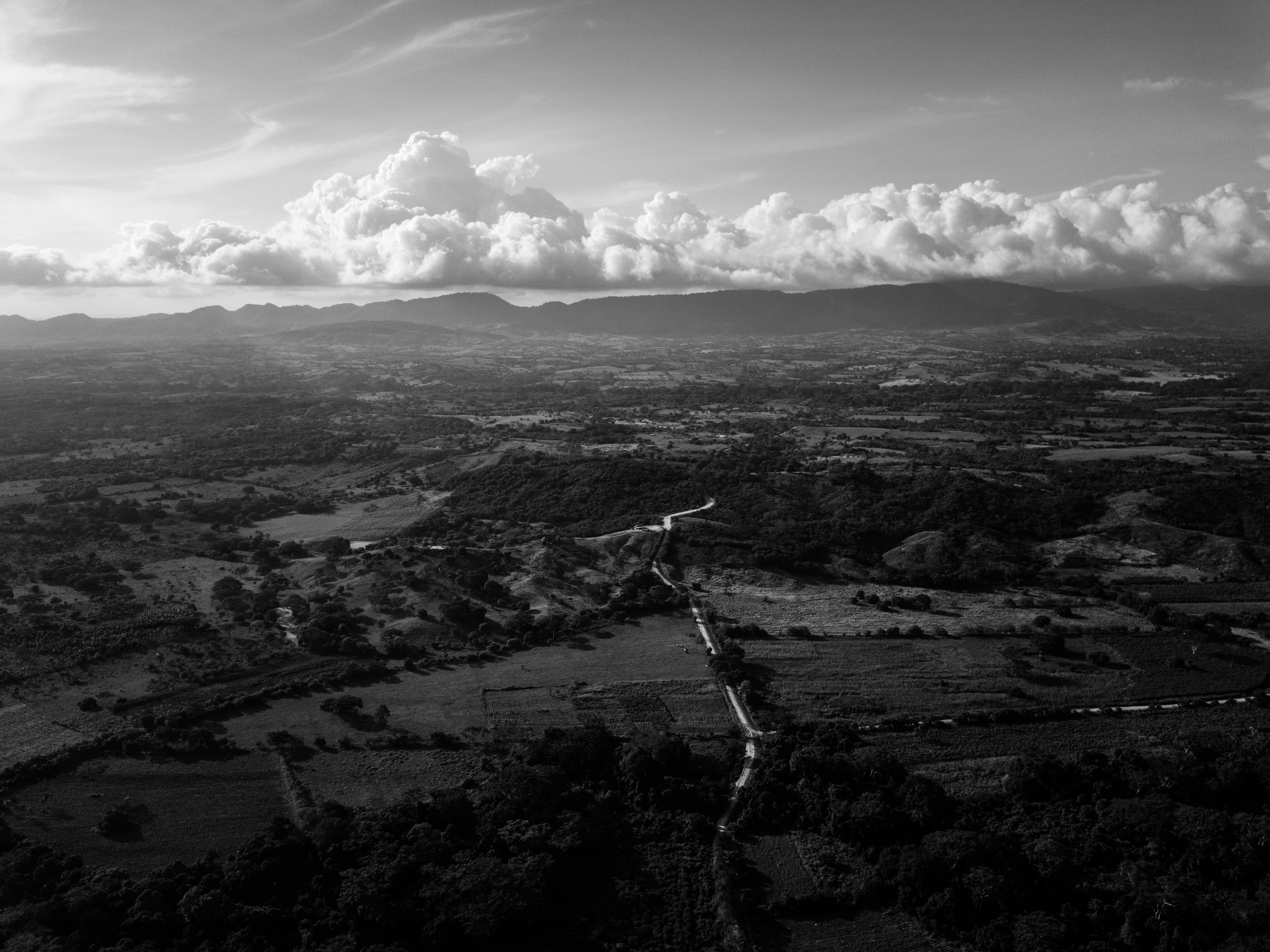
For years he was one of the top tailors in the left-wing FARC guerrilla group: carrying his sewing machine through Colombia’s jungles on the back of a donkey, he was the man who kept the Caribbean fronts dressed and battle-ready.
“They would say, we need 600 uniforms. Or a thousand tents,” says Diosenel Criado, who during his time with the rebels went by the alias Omar. “Camouflage was hard to get, but someone would smuggle it through. I would sew with my gun hanging right beside me.”
During the Farc’s 52-year battle against the Colombian state – in which more than 220,000 people lost their lives – logistics were everything. Always on the run, outnumbered and outgunned, the rebels needed to be sure their food, clothing, and camps were good.
Criado spent more than a decade with the rebels, whose acronym once stood for the Revolutionary Armed Forces of Colombia, sewing their rucksacks, army fatigues, tents. But a peace deal signed with the government at the end of 2016 saw 7,000 armed rebel soldiers give up their guns and move into reintegration camps.
Criado was among them. He brought that sewing machine – which he had kept for all those years – and is now setting up a peacetime sewing venture in a remote part of northern Colombia. Although camps like this one in Pondores, La Guajira, were meant to be temporary, many of the rank-and-file soldiers who came here to hand over their weapons have decided to stay on.
Today, it’s home to some 200 former combatants trying to figure out what a life in peacetime might look like for them. In the middle of the day, the heat is unbearable, the atmosphere lethargic.
Civilian life
A series of prefabricated houses lines a dusty footpath. There are shared bathrooms and tiny stoves in each house. One woman who spent 40 years in the guerrilla movement tells us they suffocate sleeping inside at night and that they are all putting on weight from the transition from mountain warfare to civilian life.
Since the fighting stopped, many ex-combatants have been studying, choosing to finish their high school programmes or take professional training courses. They receive a basic budget from the government to cover their needs. But the biggest question for most is how long they will be able to stay here and what they are going to do next.
Some want to work in tourism, others hope to farm. But such projects face roadblocks, with either uncertain tenancy on the land or questions over how they will be supported in endeavors entirely new to them.
Walk into Criado’s workshop and everything seems cool, calm and orderly. It’s the only place in the camp with air conditioning. UN-donated sewing machines line the desks, thread and fabric are spread neatly over the tables. He cuts the cloth using the cardboard models he was given by a government training agency; his female guerrilla recruits chat quietly as they sew nearby.
“I wanted to start this project from the moment we came here,” says Criado (49), who found out he had become a grandfather after the war. “This food, this money the government gives us, it is not going to last forever. And when this ends? We need a way to live.”
The team works hard on its new projects. The clothes are smart and precisely made: sweatsuits, dress shirts, and domestic worker uniforms. The problem is that Criado does not have any sizable orders. The biggest one he has had to date was to dress a team of ex-combatants at a nearby farm.
He travels the region trying to make contacts, chasing up promises of further orders, but business is slow. “People have said ‘we will bear you in mind’,” says Criado.
Peace deal
The success of Colombia’s peace deal – which ended the longest-running war in the hemisphere – will live or die on whether ex-Farc rebels can find a way to make a living away from the violence. But experts say this less glamorous part of the demobilization and reintegration process has not received the attention it needs.
“The process is just starting now, and very few projects have money,” says Borja Paladini Adell, the Colombia representative for the Kroc Peace Institute. “It needed to start 15 months ago. And the delay means an increased risk [that] some ex-combatants who don’t find a place in legality could be searching for solutions in the illegal economy.”
The government in Bogota remains at war with another left-wing group, the ELN, and is battling drug-trafficking mafia groups that could easily soak up those with a background in insurgency and a sense of disenfranchisement with the peace deal.
“Colombia has a lot of organized-crime groups and guerrilla dissident groups, and they’re hiring,” says Adam Isacson, a Colombia expert at the Washington Office on Latin America, adding that finding work in the normal jobs market may be tricky for ex-combatants from a group many Colombians considered a mere terrorist group.
“Business owners worry that individuals who spent years on the other side of the law will not be ethical employees,” he says.
The United Nations has expressed concern over “shortcomings” in the reintegration measures currently in place, with a recent memo from the in-country verification mission warning that “today, more than ever, renewed government support for productive reintegration is essential”.
Colombia’s newly elected president Ivan Duque has promised to do more, but as he was a skeptic of the peace deal while on the campaign trail there have been questions over how far his commitment to some parts of the deal will go.
Back in Pondores, that leaves this group of ex-combatants wondering what their future holds. Many say that those who have lived through war do not want to go back. But they also say that they need more help.
“We want to go forward with the peace process. The world needs to know that we are committed. But for reintegration we need to have a project,” says Franklin Ruiz, an ex-combatant who wears civilian clothes and a Farc baseball cap.
“We came from the jungle, a clandestine life, we come here and it’s another world,” he says. “I was in the guerrillas for 40 years. It’s not easy for us to change.”







